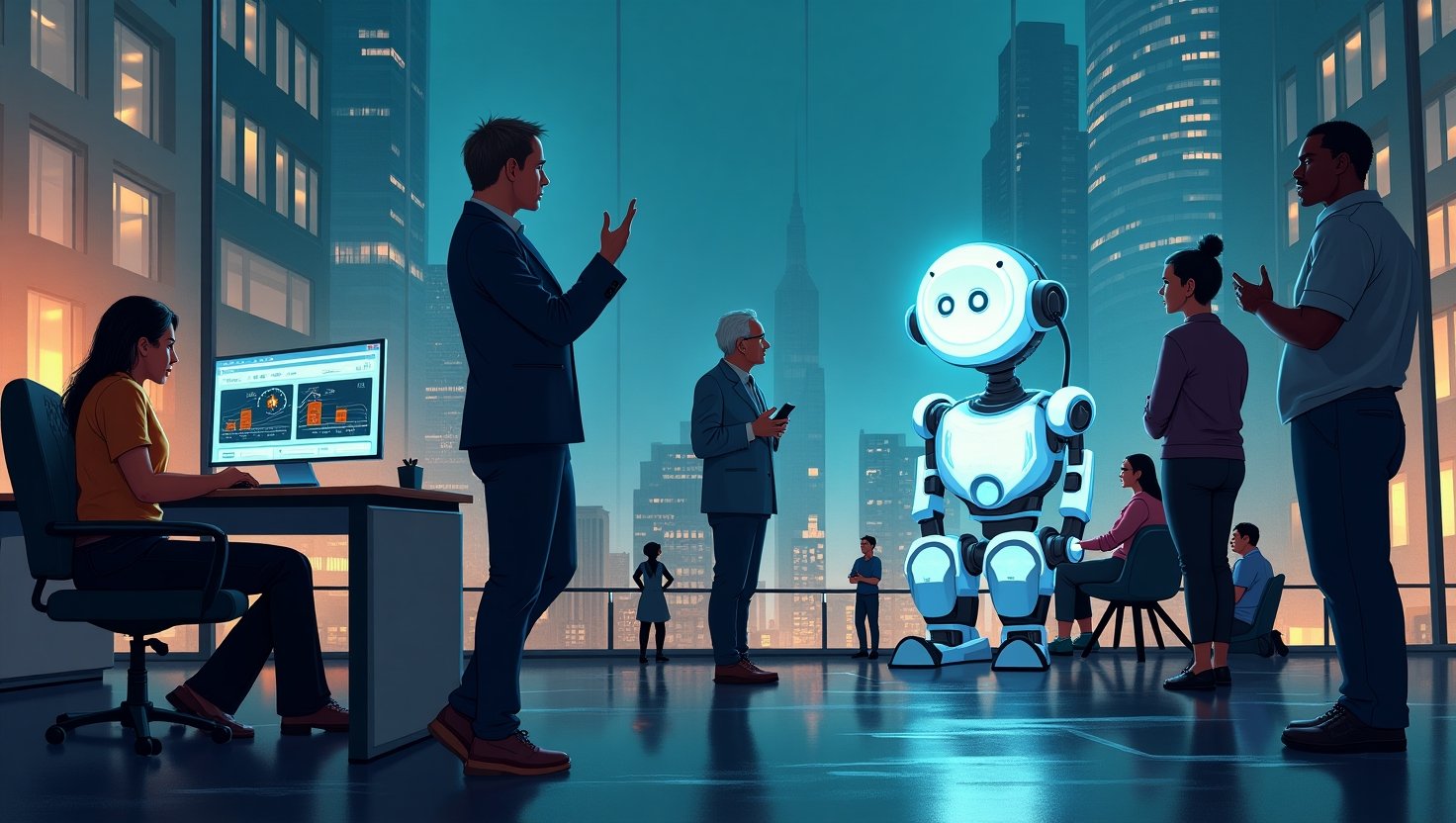The Economic Futures Program: Navigating Job Displacement in the Age of AI
Introduction
In a world driven by technological advancements, the impact of Artificial Intelligence (AI) on employment has become a pressing concern. Recognizing this challenge, Anthropic, a leading AI research organization, has launched the Economic Futures Program. This initiative is designed to address the phenomenon of job displacement caused by AI, offering strategies and solutions to mitigate its effects on the labor market.
Background
With the rapid adoption of AI in various sectors, job displacement has emerged as a key issue. Automation and intelligent systems are replacing traditional job roles, leading to significant shifts in the employment landscape. According to a TechCrunch article, AI has the potential to impact the economic stability of millions by automating tasks that were once performed by humans. Organizations such as Anthropic have recognized this challenge and are stepping forward with initiatives like the Economic Futures Program to develop forward-thinking solutions.
The labor market is undergoing substantial transformations due to AI technologies. Industries ranging from manufacturing to finance are experiencing workforce transitions, highlighting an urgent need for programs that support displaced workers and promote skill development.
Current Trends
Current trends indicate a significant impact of AI on employment. Predictions suggest that AI advancements could result in the loss of a substantial percentage of entry-level white-collar jobs. According to industry forecasts, “AI could wipe out half of all entry-level white-collar jobs and spike unemployment to as high as 20% in the next one to five years.” This creates a looming specter of job scarcity, exacerbated by technological efficiency and reduced human intervention.
Examples of such transitions are evident in sectors like customer service, where AI chatbots perform tasks traditionally managed by human agents, thus highlighting the breadth of AI’s infiltration into the workforce. As automation becomes more prevalent, understanding these trends is crucial for developing robust strategies to minimize adverse effects.
Insights from the Economic Futures Program
The Economic Futures Program stands as a testament to Anthropic’s commitment to tackling job displacement. Its objectives are centered around providing resources for empirical research, formulating policy proposals, and building tools to analyze AI’s impact on economic dynamics. Notably, the program offers rapid grants of up to $50,000 to researchers who are exploring AI’s economic consequences (TechCrunch).
Interviews with key individuals like Dario Amodei and Sarah Heck reveal insights into the program’s vision. They emphasize the importance of informed policy-making and proactive engagement with AI’s economic implications. Through collaborative efforts, the program aims to foster resilience within the workforce by equipping individuals with the skills needed to thrive in an AI-integrated job environment.
Future Forecasts
Looking ahead, the influence of AI on job markets is expected to grow. Without proactive measures, we may face scenarios where job displacement leads to significant unemployment and social instability. However, the role of initiatives like the Economic Futures Program cannot be understated. By supporting research and driving policy changes, Anthropic plays a crucial role in shaping a future where technological advancements complement rather than compete with human labor.
Anticipated economic scenarios suggest that while some jobs may be displaced, new roles may emerge, necessitating reskilling and adaptation. As AI continues to evolve, fostering an environment that balances innovation with employment is key to ensuring economic stability.
Call to Action
Engagement with the Economic Futures Program is vital for addressing the challenges posed by AI-induced job displacement. We invite researchers, policymakers, and the public to participate in this critical dialogue. By supporting research initiatives, spreading awareness, and advocating for effective policy measures, we can collectively navigate the impact of AI on the workforce.
For more information on how you can contribute, or to apply for research grants, visit the official program page. Join us in fostering a future where AI advancements lead to economic opportunities rather than challenges.

